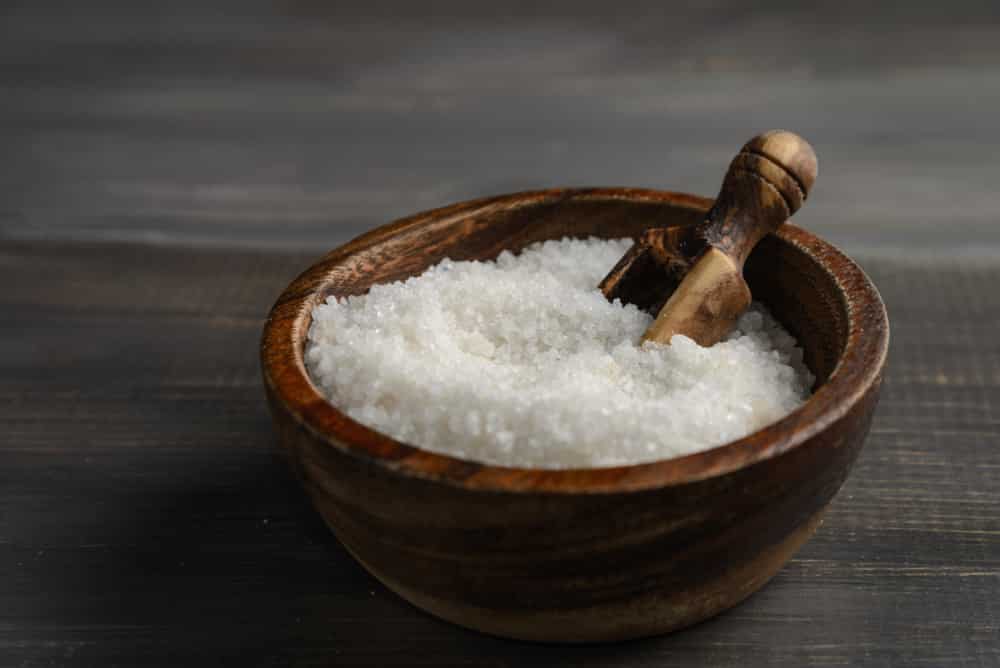
Curing the meat is a regular activity and it’s more evident where people like to store meat for a longer time period. For this purpose, brine is made with high salt content and water – the meat is put in the brine for curing and tenderizing the meat. Since salt is the primary ingredient, it’s important to use the right salt that delivers the best curing outcomes. So, to know more about kosher salt and substitute for kosher salt in brine, read the post below!
Substitute For Kosher Salt In Brine
What Is Kosher Salt?
Kosher salt is one of the most popular salts in brining as well as in other recipes, given the unique texture. It has a flaky and coarse texture and this texture actually adds an interesting touch to the dish. In brines, it is added to water to make brining solution for curing meat but it’s also used as finish salt in various dishes. Kosher salt doesn’t have many additives and is quite convenient to find. It is made from salt mines and seawater and boasts a bright yet mild flavor.
The kosher salt can stick to the meat that helps draw out more liquid, resulting in koshering. It is quite an affordable solution and can be easily found in grocery stores. As far as the uses are concerned, kosher salt can be used in brining, pickling, making spice rubs, and canning. Also, it’s what you see on the rims of margarita glasses. All in all, a few substitutes of kosher salt include;
1. Coarse Sea Salt
Coarse sea salt is the best substitute when you cannot find kosher salt and have to make a brine. This is because coarse sea salt has larger crystals, which delivers a similar crunch and can be used as finishing salt as well. Since it is extracted from the sea by using water from the salt lakes or by evaporating the seawater, the flavor is similar to kosher salt. It has various minerals that can add color and flavor to the coarse sea salt. However, the substitution ratio needs to be accurate. To illustrate, for 1 ¼ teaspoon of the kosher salt, you can add one teaspoon of the coarse sea salt.
2. Pickling Salt
If you are fine with using the salt with a different texture, you can opt for pickling salt to replace kosher salt. There are no additives in pickling salt that you usually see in the table salt. It has fine granules which means it will quickly dissolve in the brine mixture. If you don’t need to add a crunchy texture to the recipe, it’s fine to replace it with kosher salt. Since you are looking for substitutes for brine, you can easily use pickling salt in place of kosher salt. As for the substitution quantity, you can use one teaspoon of the pickling salt for 1 1/4th teaspoon quantity of kosher salt to make sure the brine’s flavor is properly maintained.
3. Himalayan Pink Salt
Himalayan pink salt is another great replacement for kosher salt and can be used to add a similar flavor to the brine. The best thing about using Himalayan pink salt is that it adds the crunch of kosher salt and enhances the appearance of brine. The Himalayan pink salt has coarse granules which add crunch and the availability of trace quantity of rust, it adds the perfect pink color. In addition, it has other additives that directly influence the flavor of brine (positively, of course).
4. Table Salt
If you don’t want to take a trip to the grocery store to purchase the substitute salts that we just mentioned, you can keep using the table salt. We are sure that you have table salt in the kitchen and will add a similar flavor of kosher salt to the brine. In terms of weight, you can use a similar quantity of table salt to replace kosher salt. However, try to purchase table salt from the same brand that you purchase kosher salt from as it helps adjust the substitution quantity.
5. Fine Sea Salt
We have already mentioned sea salt but that has a coarse texture. On the other hand, you can also opt for fine sea salt. It’s obvious that the texture will be finer, so make sure that you use less to replace kosher salt in the brine. To illustrate, for 1 teaspoon of kosher salt, you can add ¾ teaspoon of the fine sea salt.